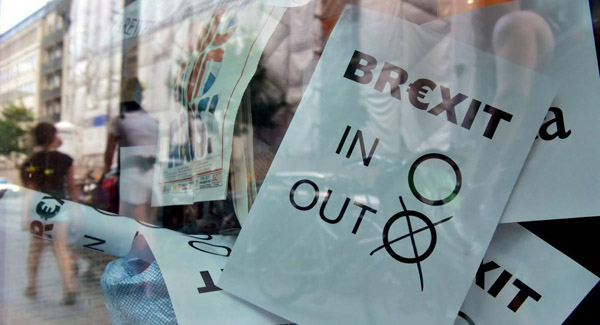
Update 3.20pm: The Social Protection Minister Leo Varadkar has moved to reassure pensioners and others here and in the UK that receive payments from the other jurisdictions that those will continue to be paid.
Minister Varadkar said nothing would change during the period of negotiation: “Pensions, workers’ rights and cross-border employment issues all remain the same.”
“As part of the negotiations which will now take up a lot of time and be really important, I’ll be making particular efforts to ensure cross-border workers and pensioners retain all the rights that they currently have.”
Meanwhile, Minister for Foreign Affairs Charlie Flanagan has asked the Irish Ambassadors from EU capitals to travel to Dublin to discuss next steps, which will include high level political contacts with the EU.
Mr Flanagan said a key priority would be ongoing work to support stability, reconciliation and prosperity for the people of Northern Ireland.
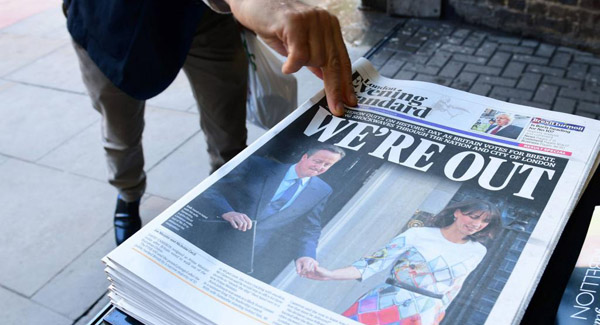
Update 2.50pm: The Irish Tourist Industry Confederation (ITIC) said it was as yet unclear what the Brexit vote means for the industry here, but said “uncertainty is not good for any business”.
In a statement, the body said: “Britain remains the largest source market for inbound visitors to Ireland with, according to the Central Statistics Office, 3.55 million visitors coming to Ireland in 2015, a market valued at circa €995m to the Irish economy.
“The fall in sterling, and potential weaknesses to the UK economy, as a result of the referendum mean that Ireland’s competitiveness is more vital than ever.”
Update 1.30pm: Northern Ireland Secretary Theresa Villiers has ruled out Sinn Féin’s call for a referendum on the reunification of Ireland.
Deputy First Minister Martin McGuinness said the poll should happem given the North’s Remain vote, saying English voters have effectively “dragged” Northern Ireland and Scotland out of the European Union.

Update 1pm: The Restaurants Association of Ireland CEO, Adrian Cummins, has expressed disappointment at the outcome of the UK referendum reiterating the need for the Irish Government to immediately take urgent steps to allay the concerns for the Restaurant and Tourism sector about the implications of this vote.
He stated: “The outcome of the UK vote has major implications for Irish Tourism and the Restaurant Sector. It is imperative the Irish Government give a clear signal on issues of major importance to the Restaurant sector, our trading relationship with the UK and Northern Ireland and the EU budget.
“The Restaurants Association is calling for a clear strategy to how the Irish are to deal with Brexit and minimise damage to Irish tourism.
“The Irish Tourism industry is highly dependent on the British Market as over three million from the UK visit Ireland each year.”
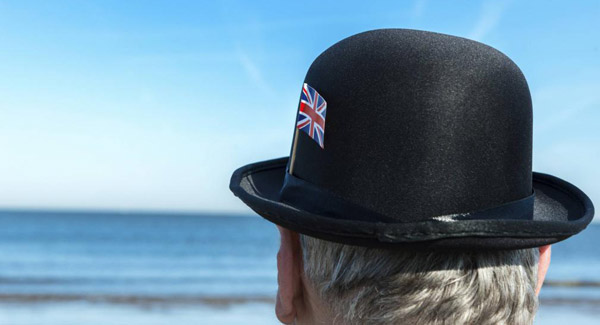
Update 11.05am: The Union of Students in Ireland has said Britain leaving the EU will negatively affect new graduates and emphasized that the factors influencing the decision to leave were racism, selfishness, intolerance and fear-mongering.
The UK is the most popular destination for Irish graduates to emigrate – one in twelve Irish graduates pursue work opportunities in the UK, and USI said Brexit will affect these graduates, and students who want to do undergraduates, postgraduates or the Erasmus programme in the UK.
“The outcome of the Brexit referendum is incredibly disappointing,” Kevin Donoghue, USI President, said: “Not only for the future of Britain, but also for the future of Ireland.
“More than 8% of Irish graduates pursue work opportunities in the UK, and Brexit will affect them, as well as the students who wish to study their undergraduates or postgraduates in the UK, or do the Erasmus exchange programme there.
“There will be tighter border controls and more complicated visa processes which will deter young people from emigrating to the UK for job prospects, education or travel opportunities.”
The USI also said new border controls between the Republic of Ireland and Northern Ireland could potentially damage years of progress in peace, economic and social relations between Ireland and the UK, and Ibec has said the return of border controls could disrupt the commercial activity between the north and south of Ireland and undermine the all-island economy.
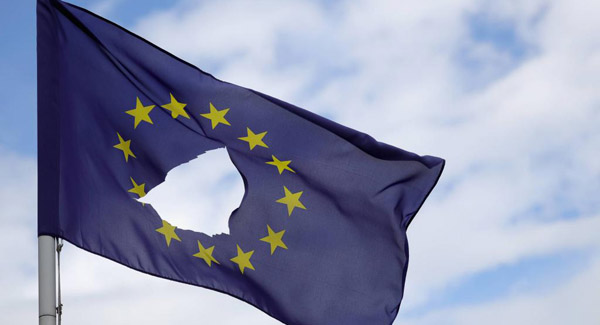
Update 11am: Enda Kenny’s briefing his Ministers on the implications of the Brexit vote for Ireland at Government buildings this morning.
Update 10.40am: Former Taoiseach Bertie Ahern is reported to have promised to return to politics if certain circumstances present themselves.
Mr Ahern said he would re-ignite his career if a campaign for Ireland to leave the EU becomes a possibility.
Speaking to the Irish Independent Mr Ahern said he was “sad and disappointed” at the Brexit result and he also said he does not believe there should be a vote for a united Ireland
Update 10.10am: The effects of Brexit are already being felt on the currency markets with Sterling already weakening against Euro by 5% with further weakness expected over the coming weeks.
Barry Dowling, co-founder of Irish-owned Global Payments Provider Transfermate explained: “The markets are not fans of uncertainty and with investors deciding where their money is best placed, decisions to invest in the UK are likely to be affected which will have a further knock on effect on Sterling.
“The implications for Irish business are uncertain and varied.”
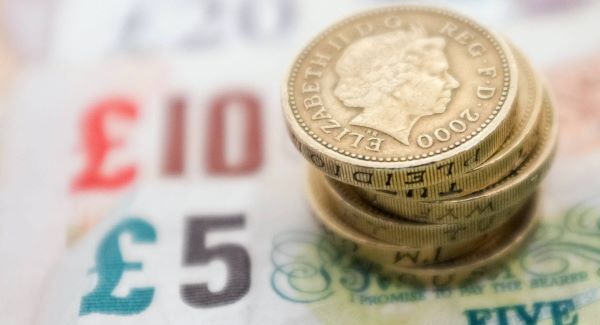
Experts at Transfermate say that while businesses paying suppliers in Sterling, would welcome a weaker Pound, for UK suppliers that are sourcing goods from overseas, a weaker Sterling will ultimately feed through to prices increases with UK suppliers looking to take account the knock on effect of a higher cost of goods, wiping out any short terms gains to be made by importers.
Barry continued: “Our advice to Irish importers would be to contact suppliers as soon as they can to lock down pricing before inventory levels run lower and decisions are made by suppliers to increase pricing. If you can benefit from a weaker Sterling and security in relation to pricing you are likely to be in a stronger position”.
Update 10am: The Irish economy will be hardest hit by the inevitable slowdown in the UK economy according to some economists.
The UK Treasury estimates that their economy will take a 4-6% hit, in terms of economic output.
Britain is one of our biggest trading partners – and that partnership is under the spotlight in light of Britain’s decision to leave the EU.
Chief Economist with Goodbody Stockbrokers, Dermot O’Leary, has said a slump in Britain will hit us here: “You’re talking about a 4-6% hit to the UK GDP.
[media=gns][/media]“That will also have knock on implications to the rest of Europe., the euro area and within that obviously Ireland would be the most affected of any European country because of a slowdown that is going to happen in the UK.
“So huge ramifications across the European sphere, and obviously huge ramifications across the market sphere also.
Update 9.50: Irish agribusiness is now bracing itself for the outcome of the Brexit result, as the UK remains our prime market outlet.
Primary trade between North and South, the issue of EU and non-EU approved ingredients and how they would be labelled and marketed is also of real concern to Irish farmers.

The Farmers Journal has said 50% of Ireland’s total beef exports goes to the UK, followed by one third of our total dairy exports. With the UK leaving the EU, a drop in Irish exports of between €150m to €800m can be expected.
Update 9.40: Managing partner of KPMG Ireland Shaun Murphy has said it is in everyone’s interests that trade between Ireland and the UK maintains its relationship.
“Ireland and the UK are significant markets for each other’s goods and services and this will not change but there is a concern about potential unwelcome alterations to trade rules – this can be avoided if negotiators on both sides stay focussed on minimising trade disruption.”
Commenting on the effect this referendum will have on cross border trade between Northern Ireland and the Republic Mr Murphy said “quick effective negotiations” are required.
“Cross border trade is vital to both Northern Ireland and the Republic of Ireland. Given the potential impact on employment and exports, businesses on both sides of the border will want to see quick, effective negotiations that result in minimum cost and disruption to trade. ”
Update 9.30am: SIPTU General President, Jack O Connor, has stated that the victory of the Leave campaign in the British referendum on EU membership results from the implementation of austerity policies that have alienated working people across Europe.
O’Connor said: “The vote for Brexit is the result of the years of austerity which have alienated working people all over Europe.
“Unless there is a dramatic shift in fiscal policy and an immediate end to one sided austerity the end of the European project is now inevitable.”
Update 9.20: Car data experts Motorcheck.ie have said Brexit will have a negative effect on the Irish motor trade.
The financial markets expect Sterling to weaken against the Euro by between 15-25% meaning imports from the UK become more attractive prompting a further surge of used vehicles imported from the UK hitting our shores in the coming months.
Commenting on the potential effects of this, Michael Rochford, Managing Director of Motorcheck.ie said “the knock on effects of Brexit are potentially very worrying for both the new and used car markets in Ireland.
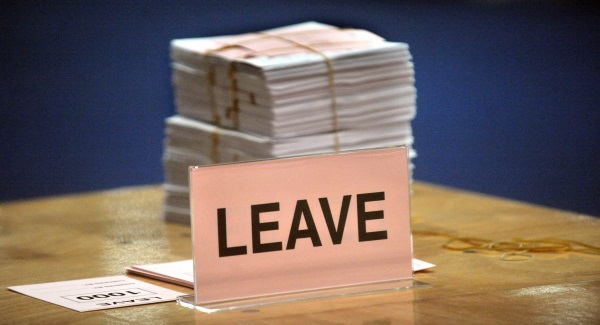
“Firstly a weakening of sterling and a surge of cheap UK imports will mean used car values in Ireland may fall sharply from their current position. This may leave many car buyers in negative equity as the value of the car they are driving falls beneath what they owe”.
Update 9.15am Deputy Michael Healy Rae has issued a statement vocalising his concerns regarding Brexit.
“The decision by the British people to leave the European community will have effects far beyond their own borders.
“With the removal of the UK from the EU trade channels, it will become more difficult for Irish producers to export their goods across the Irish sea, resulting in a potential decrease of 20% on the bilateral trade flows between the two countries and a 3.3% drop in total merchandise exports from Ireland, disproportionately affecting the Basic and Fabricated Metals, Agriculture, Forestry and Fishing, Food and Beverages, and the Textile product and sectors.

“Trade is not the only area affected by British exit. With their departure, Foreign Direct Investment into the UK is also likely to fall, leading to lower productivity growth and lower potential growth, effects which will, in turn, negatively affect Ireland as well.
“Finally, the labour migration of workers between Ireland and the United Kingdom is at risk. Given previous EU immigration laws, this had never been a problem, but now, it is possible that the UK could impose visa requirements upon Irish citizens working in the UK, creating a great inconvenience to our citizens. Furthermore, immigrants that had been bound for the UK will now come to Ireland, with research suggesting an average wage fall of 3.9% with workers in high skilled positions experiencing a 5% wage decrease.
“Once again, I am very disappointed in the actions of the United Kingdom. They have not only abandoned their closest neighbours, but also the entire European Community.”
Earlier Former Taoiseach John Bruton has said Irish exports will now become much more expensive, for the UK market.
He says we need to become much more competitive – but believes we are a strong modern economy and will be able to cope :”Well I think we should have bilateral discussions with everybody but we have got to strengthen our own economy.
“This is a major shock to the Irish economy, because the fall in Sterling is going to make Irish exports to the United Kingdom, much more difficult to sell because of the price increase.
“So we are going to have to become much more competitive as an economy.”
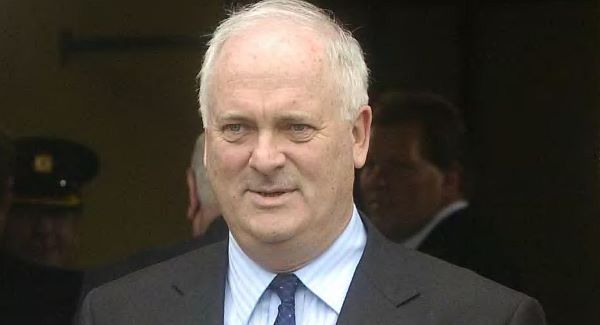
The Irish Hotels Federation has released a statement stating: “It is too early to predict the effect that today’s decision will have on Irish tourism given the uncertainty around the future relationship between the UK and the EU and the time it may take for the nature of that relationship to be agreed.
“While Ireland’s competitive tourism offering will help mitigate any negative impact, there is a risk that economic uncertainty and a weaker Sterling could impact on visitor numbers from the UK, which is our largest source of inbound tourists.
“The Irish Hotels Federation is therefore calling on the Government to set up a dedicated working group to examine the short and long-term implications and to ensure appropriate measures are put in place to enable Irish tourism react quickly.”


